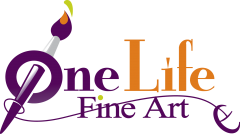In my last post I shared my take a way from Sarah Robb O’Hagan’s book on developing drive. You can read it here.
My next take away is on stepping out of line.
As part of my current 100 Rejections Project, I am sending out a lot of proposals, resumes and calls for submissions. If it were not for the aim of this project, to get over the paralyzing fear of rejection and do it as fast as possible by applying for everything I think I am capable of in the arts, I would not say that this is the best or most efficient method for me to find interesting new projects. Why? Because essentially what I am doing by responding to calls is standing in line, with everyone else who is also qualified and interested in this area. In that context, I am safe, ordinary, and definitely un-interesting.
My best opportunities have come when I stepped out of line. When I did not fill out an application, write a resume or get references. When I saw an opportunity, had an idea, and unsolicited, asked to talk to someone about it.
The problem with stepping out of line, is that it really is risky. In the arts (a field known for individualism and boundary pushing), it can be a real challenge to step out of line without crossing the line. Consequences of crossing the line in such a social industry can mean no one will deal with you. Yet sometimes those lines can be murky, invisible, or even shift location.
If you must stand in line, there is a way to stand out. You know what the interviewer wants. I know you do. But if it isn’t you, don’t pretend it is! Stay true to yourself. Be honest with them. You may not get that part, but if you impress that person with the strength of your own gifts, they may have a better offer for you later. I have been to interviews where this was the case, and special positions or projects have been created just for me. If you do get the part, you know and they know what they will be getting.
However, knowing that my best opportunities come from stepping out of line, I can use that to quell my fears about the possibility of getting caught out of line. What could be the consequences? What is the likelihood of that? How can I recover if that happens? Is the benefit worth the risk?
A final bit of solace, in the words of Oscar Wilde:
The only thing worse than being talked about is not being talked about.
